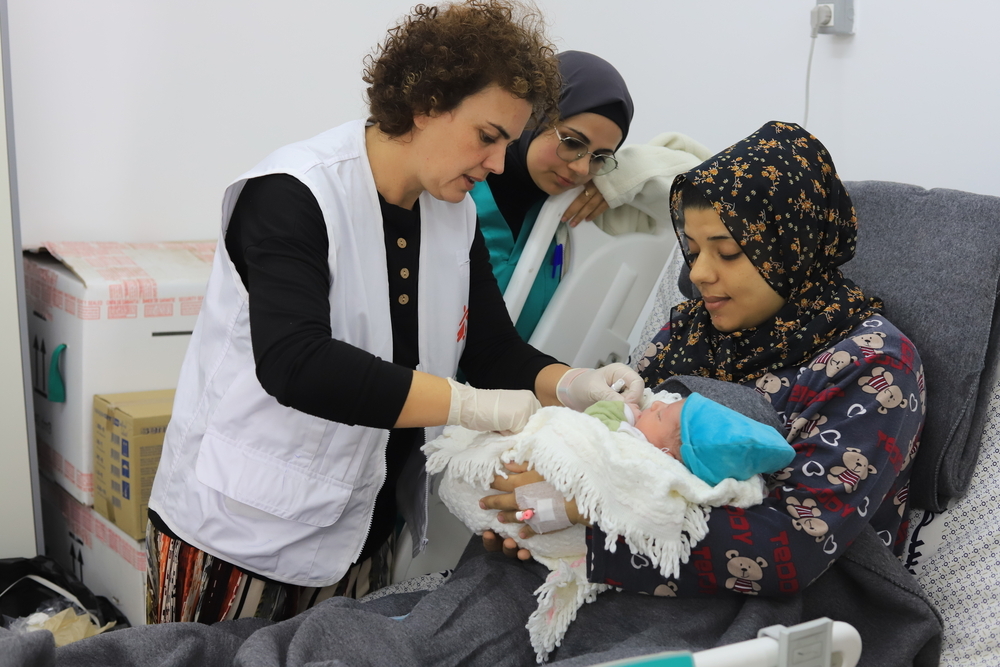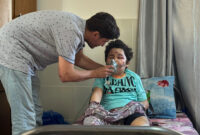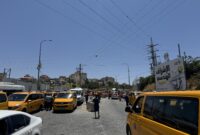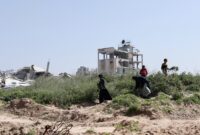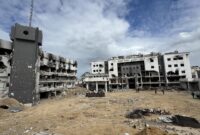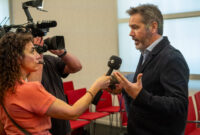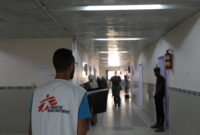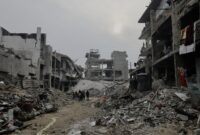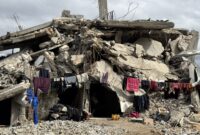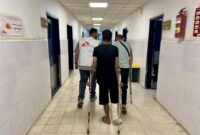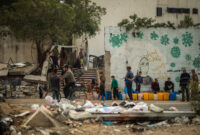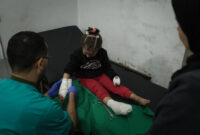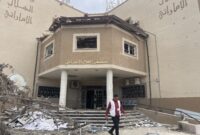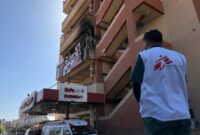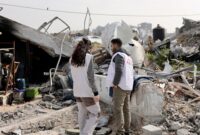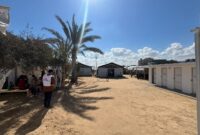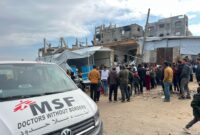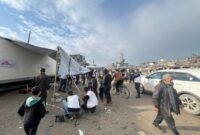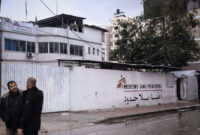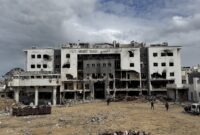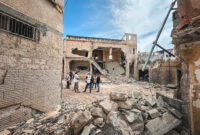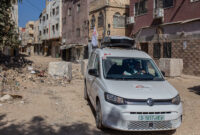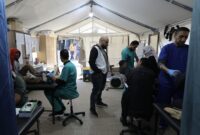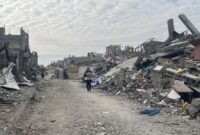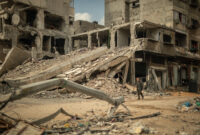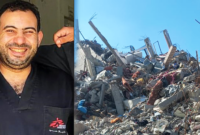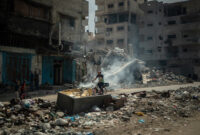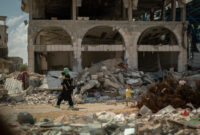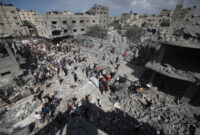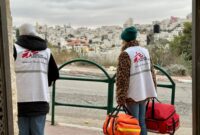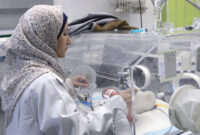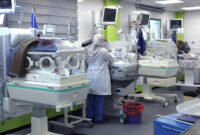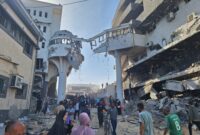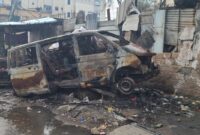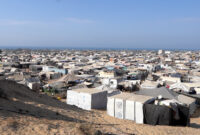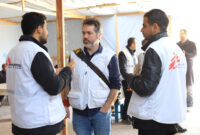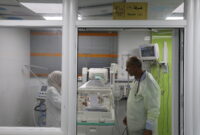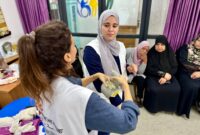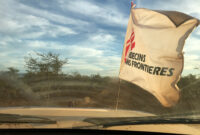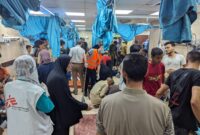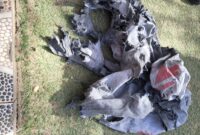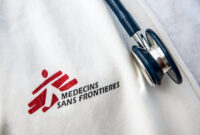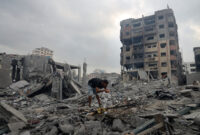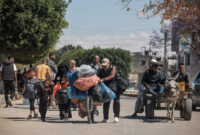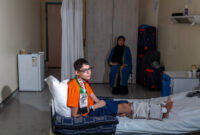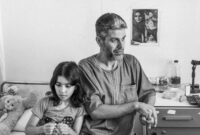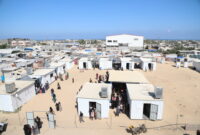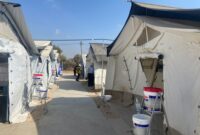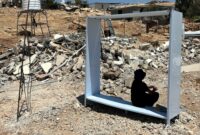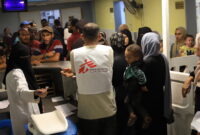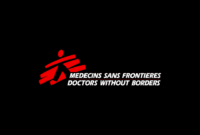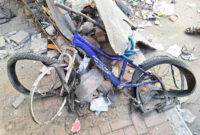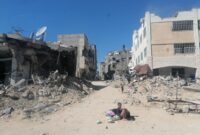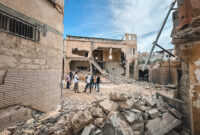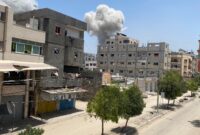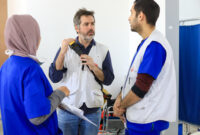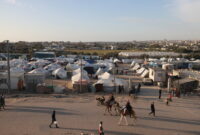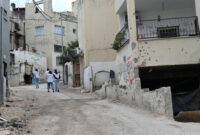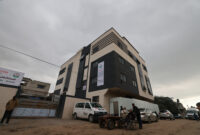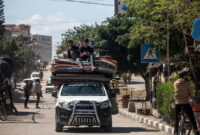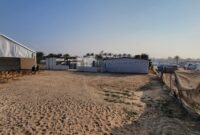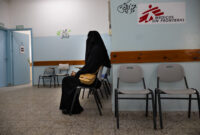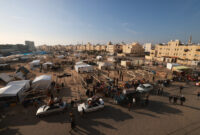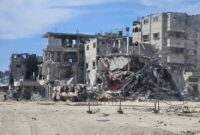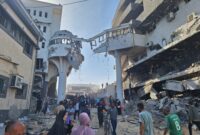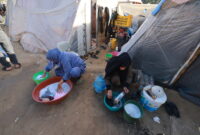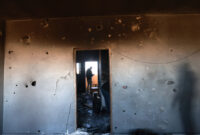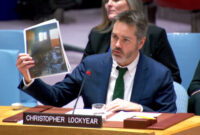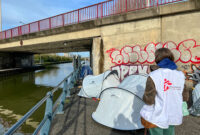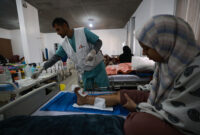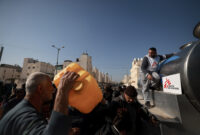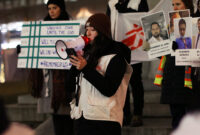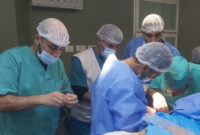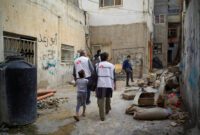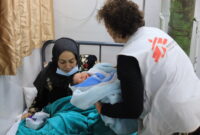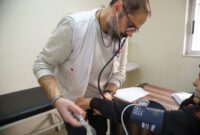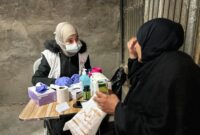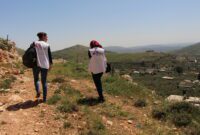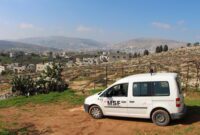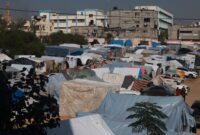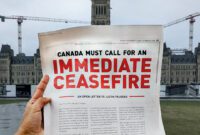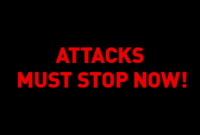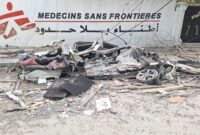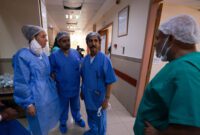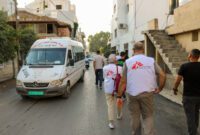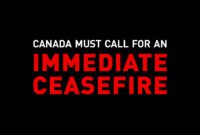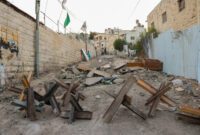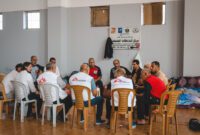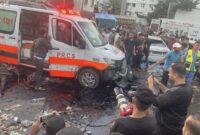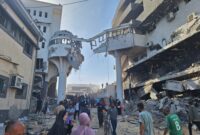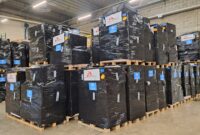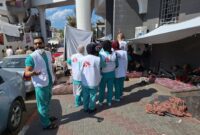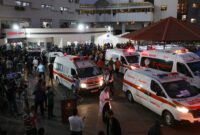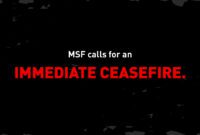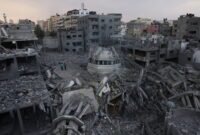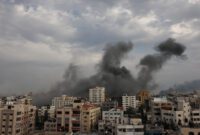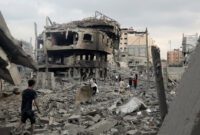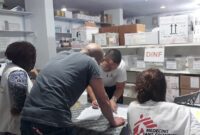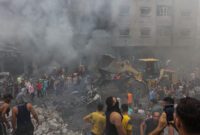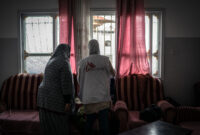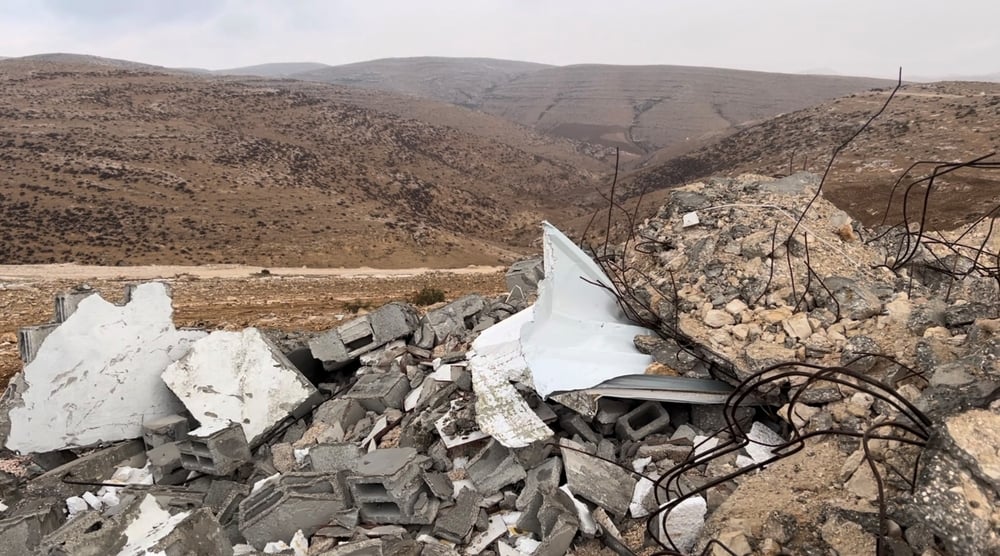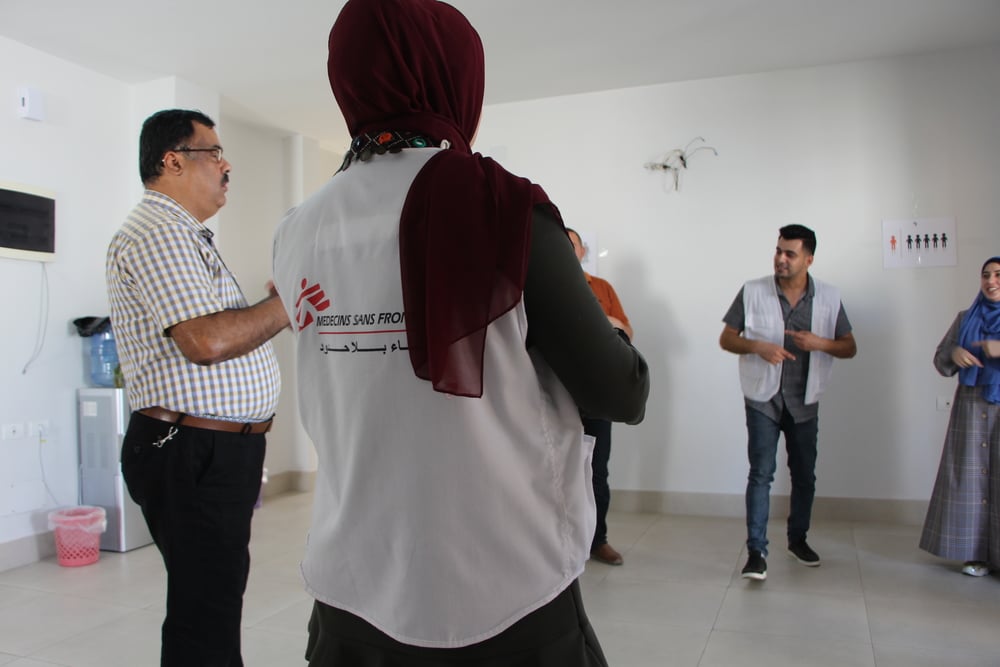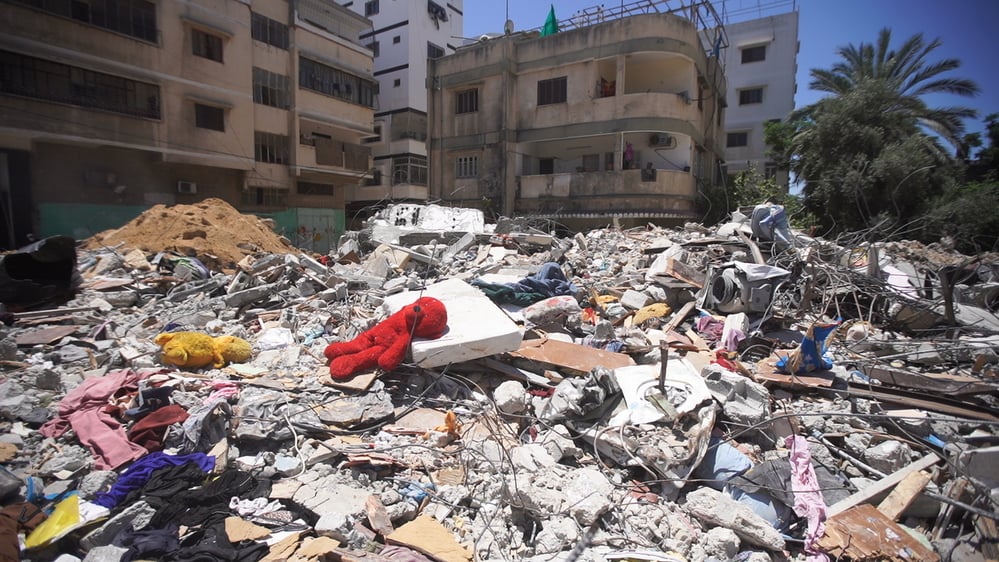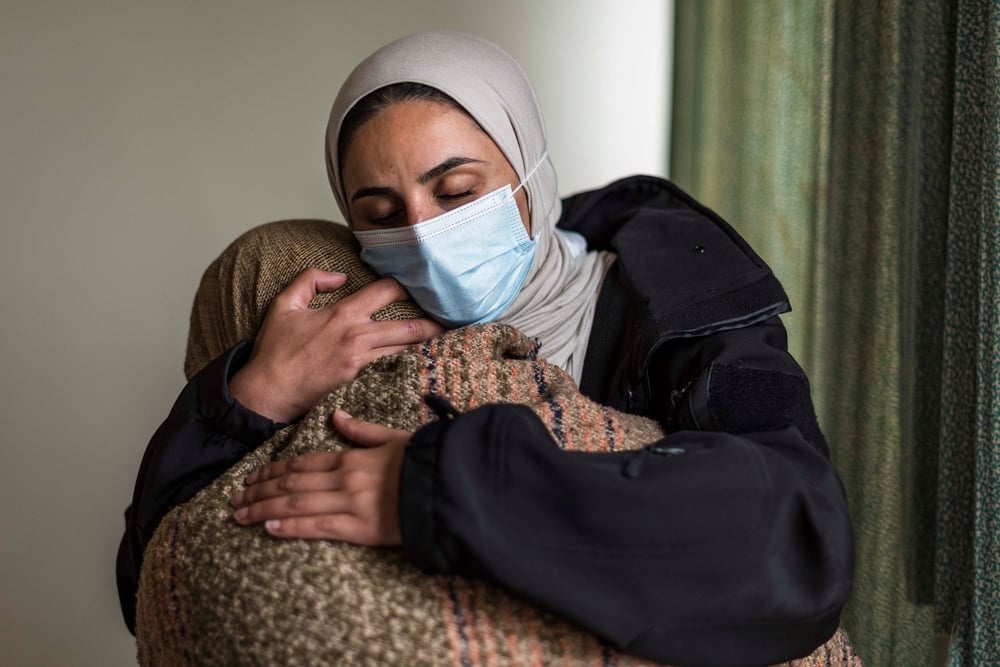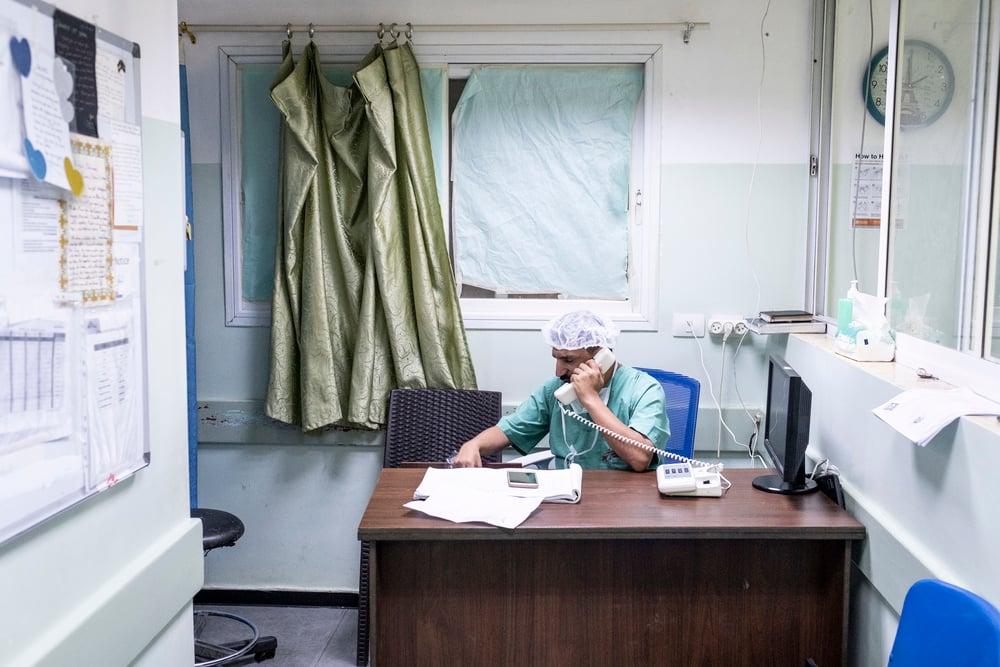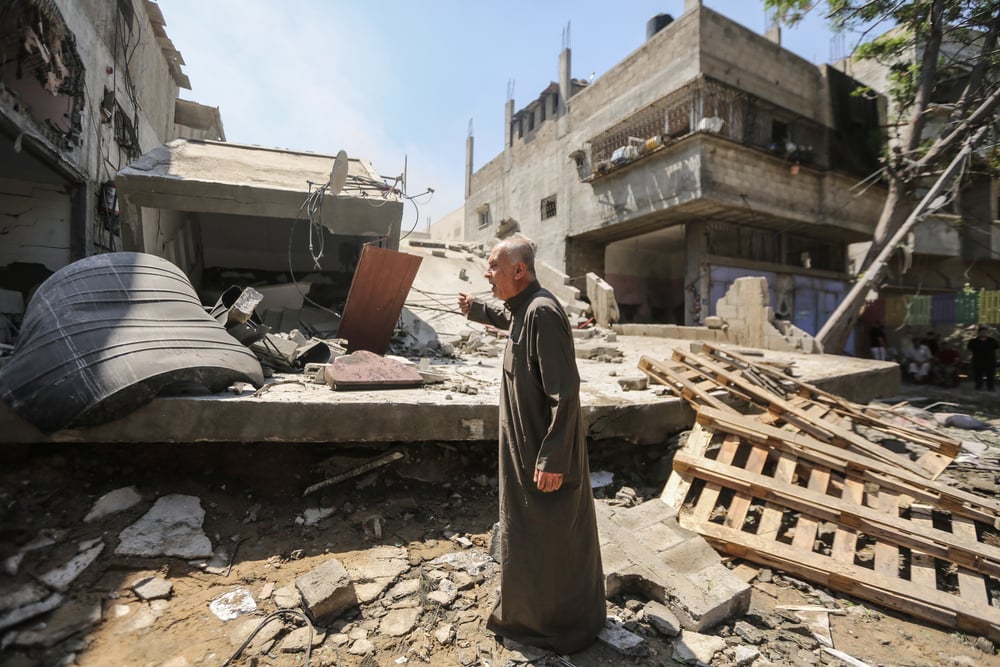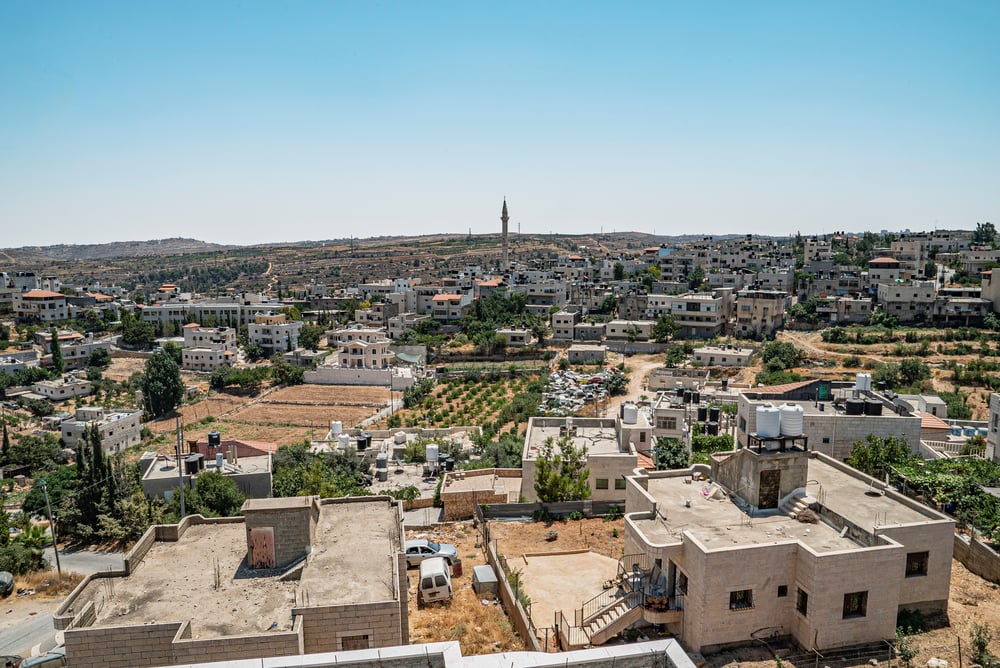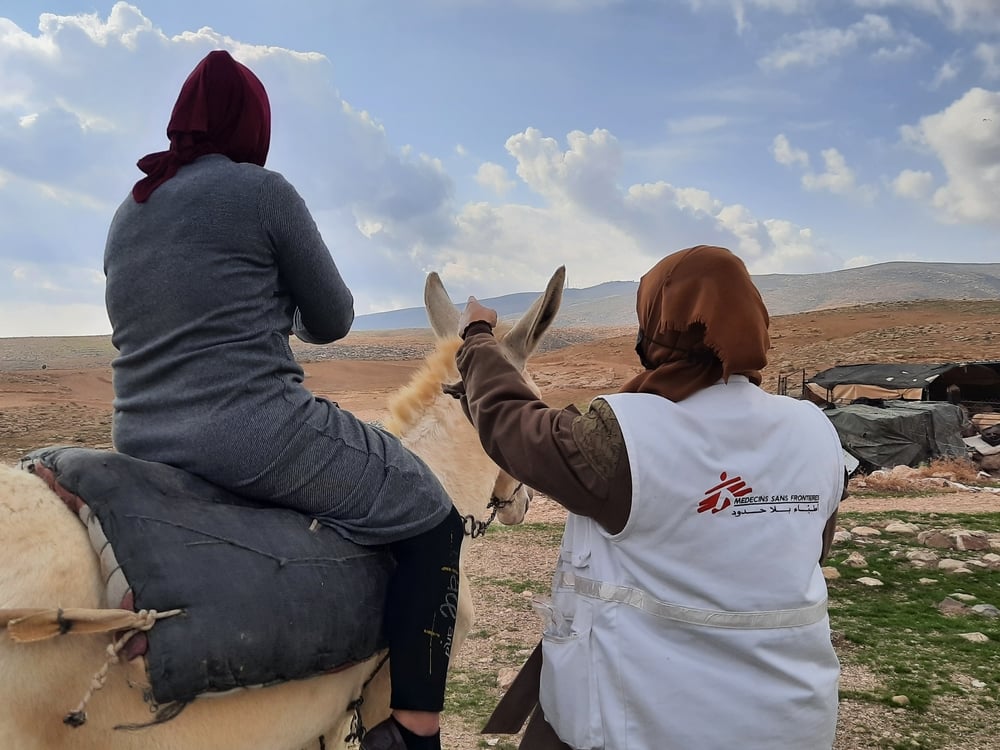“Mommy, I’m afraid”
MSF testimonies from Gaza highlight childhoods destroyed by war
Content warning: this article contains distressing content.
“Mommy, I’m afraid.” Dr. Ruba, a mother and MSF doctor in Gaza, retells a conversation she had with her son in February 2024. “…I really just want to live. Mommy, I’m afraid that the siege will come near to us, that we will not be able to get food or water. I am afraid that I will die from hunger, or I would see you dying in between my hands because somebody shot you or a quadcopter shot you, and we couldn’t save you, mom.”
These fears reflect what Doctors Without Borders/Médecins Sans Frontières (MSF) colleagues have witnessed since the start of Israel’s war on Gaza: childhoods shattered and destroyed by brutal and indiscriminate violence. We are deeply alarmed by reports by the UN agency for Palestinian Refugees that more children have been killed in recent months in Gaza than in four years of conflict worldwide, as well as the UN secretary-general’s characterization of Gaza as a “graveyard for children.” As harrowing as these statistics are, it is the stories and testimonies from children, their caregivers and their medical providers – including MSF staff in Gaza – that most devastatingly convey for us how children’s lives are uprooted and changed forever due to ongoing violence.
Here are just a few direct MSF testimonies from Gaza from the past six months that highlight the unbearable toll of this war on children.
“How do you do physiotherapy…on babies, a one-year-old who cannot walk but who’s already lost his legs?”
Marie-Aure Perreaut Revial, former MSF emergency coordinator in Gaza (December 2023)
MSF-supported hospitals in Gaza receive an overwhelming number of children with debilitating injuries due to ongoing bombardments on or outside their homes. Burn injuries, missing limbs and severely infected war-related wounds due to lack of medical care are all among the injuries MSF has treated children in Gaza for since the start of the war. Marie-Aure Perreaut Revial describes that MSF surgeons have had to “operate on one-year olds, two-year olds, who had to be amputated from one leg or two, one arm or two,” illustrating the excruciating painful injuries children are forced to endure during this war.
Emily Callahan, an American MSF nurse who evacuated from Gaza in November 2023 similarly shared that she witnessed “children with massive burns down their faces, down their necks, all over their limbs. And because the hospitals are so overwhelmed, they are being discharged immediately to camps with no running water…and they have these fresh, open burns and wounds and partial amputations and parents going around to us saying, ‘please, can you help? Please, can you help?’”




Due to Israel’s ongoing siege on Gaza and the scarcity of essential medical supplies, only light sedation can be provided to most patients in the wards – including children – to relive pain during painful surgeries, including amputations.
“Most of these children arrived without any parents, without any family, that were screaming for their parents, screaming for their family.”
Faris Al-Jawad, former MSF communications manager in Palestine (November 2023)
Last year, medical teams created a devastating new acronym, WCNSF – wounded child, no surviving family – to describe the large number of orphaned and unaccompanied children who arrive at Gaza’s hospitals seeking care. Children have conveyed to MSF medical teams that they have witnessed family members being killed, crushed in their homes and dismembered before their eyes.
For example, following the strike on Jabaliya refugee camp in November 2023, Faris Al-Jawad, former MSF communications manager in Palestine described that colleagues in hospitals conveyed a situation where most of the children arriving were without any parents or surviving family members. “There was nobody there. So our team member had to stay with the children, obviously give them emergency medical care, but also stay with them thereafter because they’re alone.”
Under the constant threat of families being separated and torn apart, Gazans have resorted to unimaginable measures to – at the bare minimum – make sure the bodies of their loved ones can be identified if killed. “I have written the names of my children and my family on their wrists and legs, so that we can be identified if we are bombed and our place is destroyed,” says one MSF doctor in Rafah in February 2024, who preferred not to be named.
“My child [says]… ‘Mum, I am hungry, I want to have breakfast.’ While making the breakfast with the bare minimum of supplies, I start to blame myself for having children and bringing them into a world with such dire conditions and frequent wars – especially this miserable war.”
Israa Ali, MSF interpreter based in Jabalia, northern Gaza (January 2024)
Food scarcity and surging malnutrition are also placing an unbearable toll on children and families, especially in northern Gaza, where the World Health Organization has reported catastrophic levels of hunger. As she tries to feed her hungry children with the bare minimum of supplies, MSF interpreter Israa Ali, based in Jabalia, northern Gaza, has at times blamed herself for bringing children into a world with such dire conditions. While MSF’s presence in northern Gaza is limited, testimonies from our Palestinian colleagues like Israa give us grave concern about severely limited access to basic food, water and other essential supplies.
In southern Gaza, MSF is also responding to malnutrition. “In Al-Aqsa hospital [in Gaza’s middle area], there was a terrible situation where the teams there were having to decide between whether to give beds to trauma patients or to give them to malnourished kids,” said Christopher Lockyear, MSF International Secretary during his visit to Gaza in March 2024.
“Children are extremely scared. We are hearing a lot of stories of children not sleeping, having insomnia for months, having nightmares of losing their families.”
Dr. Audrey McMahon, MSF child and adolescent psychiatrist (March 2024)
The psychological toll of war and forced displacement on children’s emotional wellbeing in Gaza is immense. In conversations with MSF psychiatrists, children describe their exposure to extremely traumatic events and feeling no sense of safety or security.
MSF offers support for children experiencing high psychological stress and trauma, including through play, storytelling and art-based activities. Many children are using drawings and storytelling to process and try to make sense of their situations; and to bring some sense of normal in the absolute abnormal.
“The children themselves have begun to question their belonging to humanity. We have to ask ourselves – is this the world we want children to grow in? Is that the world we want for them?” says Dr. Audrey McMahon.
“Those two little girls were the life and soul of the hospital, cheerleading other patients.”
Christopher Lockyear, MSF secretary general (March 2024)
Despite the horrors they are forced to endure in Gaza, MSF has also directly witnessed the resilience children carry and shine on their loved ones despite all odds. After recently returning from Gaza, MSF secretary general Christopher Lockyear described witnessing two young girls cheering on patients to support their recoveries at Rafah Indonesian Hospital and a six-year old boy holding on to his father tightly while receiving physiotherapy on his injured leg.
Similarly, Dr. McMahon describes how hope and grief is interwoven in children’s artwork conveying their experiences in Gaza: “There are kind of two worlds: a world made of yellow, with beautiful houses and a shining sun; and a world made of red, with dismantled body parts taken down to pieces….It’s like there is a before and an after in this drawing. The world of the sun, and the chosen colour was yellow, a colour of light, of joy.”
These stories are a mere glimpse at childhood right now in Gaza – characterized by unthinkable horrors and trauma but also a relentless hope for a better future.
MSF continues to call for a sustained and immediate ceasefire in Gaza.
